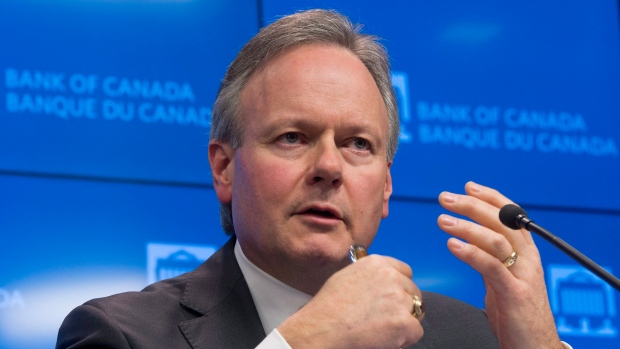Apr 2, 2018
What Ontario and Quebec's fiscal stimulus means for the Bank of Canada
, Reuters

TORONTO/OTTAWA - Fiscal stimulus from major provinces is set to give Canada's economy a shot in the arm, which could boost the case for further Bank of Canada interest rate hikes over the coming months despite slow growth at the start of the year, economists said on Monday.
Ontario and Quebec last week delivered pre-election budgets that promised billions of dollars of increased spending on government programs.
The fiscal stimulus from the provinces, along with the federal government's previously announced measures, should add 0.5 percent to Canadian growth this year, said Krishen Rangasamy, senior economist at National Bank Financial.
"What was announced is material compared to what the Bank of Canada had assumed back in January," Rangasamy said. "I will be stupefied if they (the central bank) don't raise their growth forecast."
The Bank of Canada expects growth to moderate to 2.2 per cent this year after a robust 3.0 per cent in 2017.
The impact from the budgets will be taken into account when the bank updates its economic projections on April 18, Bank of Canada spokeswoman Amelie Ferron-Craig said.
"As always, we take fiscal policy as given and incorporate it in our forecast," Ferron-Craig said in an email on Monday.
Policymakers have raised rates three times since July to 1.25 per cent but have worried about uncertainties such as the renegotiation of the North American Free Trade Agreement (NAFTA) and the impact of past rate hikes on highly indebted households.
"Fiscal stimulus lets those rates rise quicker than they otherwise would," said Robert Kavcic, senior economist at BMO Capital Markets.
Real spending by the provincial and federal governments could rise by as much as about 3.5 per cent in calendar 2018, with the provinces driving that growth, Kavcic said.
Chances of a rate hike in May have been reduced to a coin toss from more than 80 per cent one week ago, after data on Thursday showed the economy unexpectedly shrank by 0.1 per cent in January.
But the economy was held back at the start of the year by some temporary factors, such as auto plant and pipeline shutdowns, economists said.
"It is too early to say that the year is a wash," said Mark Chandler, head of Canadian fixed income and currency strategy at RBC Capital Markets, on Thursday. "Order books for a lot of companies in Canada are in good shape."
Growth in the Canadian manufacturing sector firmed in March as purchasing activity rose at the fastest clip in almost seven years.
"If a revamped NAFTA is agreed to before the summer you could see investment bounce back sharply and that is going to give an additional boost to growth," National Bank Financial's Rangasamy said.

